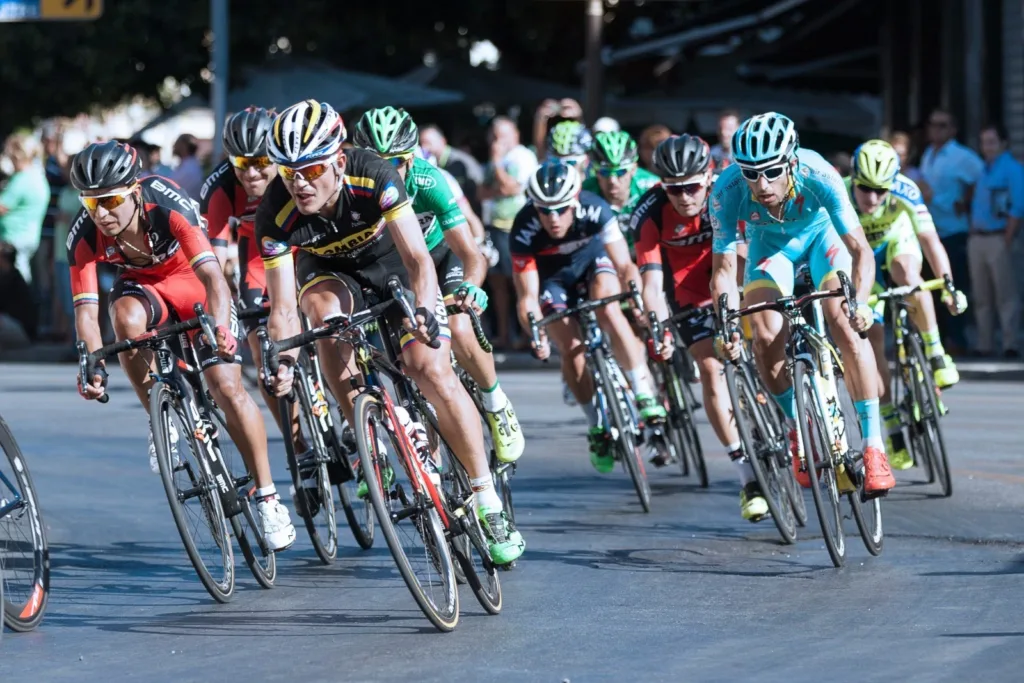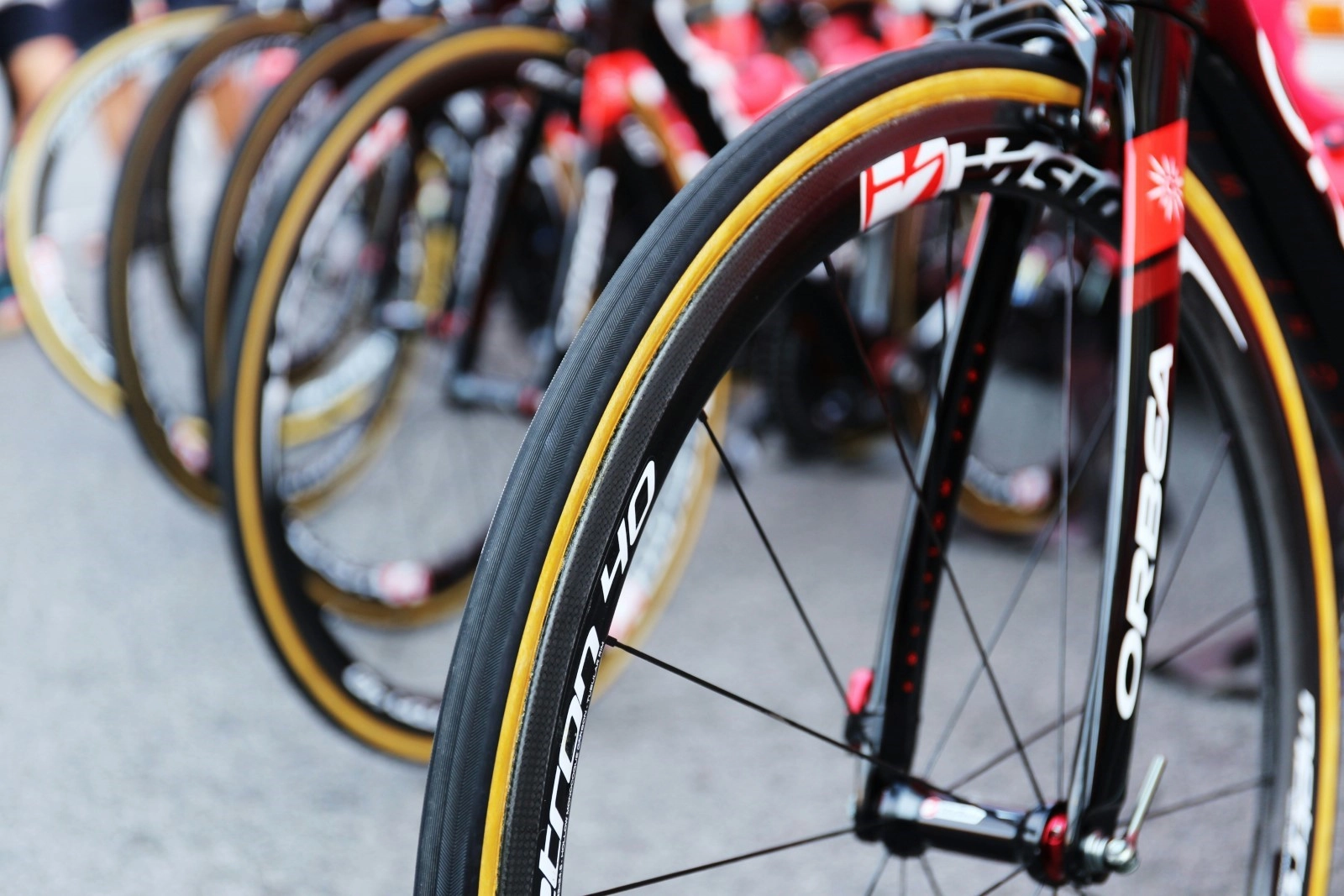Cycling has long been one of the most exciting and competitive sports in the Olympic Games. From its first appearance in the 1896 Athens Olympics to its modern evolution, cycling has captivated audiences and tested the physical and mental limits of athletes. The sport has grown from its early roots in road and track racing to now include thrilling disciplines such as BMX and mountain biking, making it one of the most diverse and popular events in the Olympics.
Beyond its Olympic significance, cycling is an integral part of the training regimen for professional athletes across various sports. Whether preparing for a race or recovering from an intense workout, many athletes incorporate cycling into their fitness routines using exercise bikes, exercycles, or spin bikes. In this article, we will explore the fascinating history of cycling in the Olympics and the role it plays today, not only for athletes but for anyone interested in improving their fitness.
Origins of Cycling in the Olympics
Cycling’s Debut in the Modern Olympics
Cycling made its Olympic debut in Athens in 1896. The event featured six races held at the velodrome in the Neo Phaliron district.
The French cyclist Paul Masson dominated these early games, winning three gold medals. His victories in the 2 km, 10 km, and single lap races showcased the speed and agility of the sport, captivating spectators and athletes alike. Masson’s achievements laid the groundwork for cycling’s future prominence in the Olympic Games.
Later, a grueling 87-kilometer road race from Athens to Marathon and back was introduced. This event tested the endurance of cyclists as they navigated rough terrain and primitive road conditions.
Development Over the Years
As the Olympics evolved, so did cycling. The sport expanded its disciplines, incorporating new challenges for athletes and new events for spectators. Road cycling remained a staple, but track cycling gained equal prominence. Over time, the Olympics also introduced BMX racing, which debuted at the 2008 Beijing Olympics, and mountain biking, first seen in the 1996 Atlanta Games. These additions diversified the sport, increasing its appeal to both athletes and fans.
Key Milestones in Olympic Cycling History
Early Years (1896–1920)
The first few Olympic Games saw cycling dominated by road and track events. Athletes like France’s Paul Masson, who won three gold medals in track events at the 1896 Athens Olympics, set the tone for future generations. In the early years, most races were held on rough roads and rudimentary tracks, making these achievements more impressive. The foundation for cycling as a core Olympic sport was firmly laid.
Introduction of Women’s Cycling (1984)
One of the most significant milestones in Olympic cycling history was the inclusion of women’s events at the 1984 Los Angeles Olympics. Women competed in the road race for the first time, and this marked the beginning of gender equality in Olympic cycling. The event was won by Connie Carpenter-Phinney of the USA, and her victory opened the door for more women to participate in subsequent Games.
Addition of BMX and Mountain Biking
The introduction of BMX in the 2008 Beijing Olympics and mountain biking in the 1996 Atlanta Games further diversified the sport. These disciplines attracted a younger audience and highlighted the versatility of cycling as a sport. BMX racing, with its short, intense races, quickly became a fan favourite, while mountain biking added an element of rugged, off-road excitement to the Olympic program.
Cycling Disciplines in the Olympics
Road Cycling
Road cycling is one of the most prestigious and iconic events at the Olympics. The road race and time trial test cyclists’ endurance, strategy, and ability to navigate challenging courses. These events often feature dramatic finishes, with riders sprinting toward the finish line in the final kilometres. Olympic road cycling continues to attract some of the world’s top professional cyclists, adding to the event’s prestige.
Track Cycling
Track cycling is an indoor competition that often reaches speeds exceeding 60 km/h, surpassing the average speed of cars in Auckland traffic. Imagine the intensity of a sprint race, but on two wheels and in a controlled environment. This sport demands not only physical power but also a sharp mental focus to make split-second decisions during races.
The evolution of bike technology, including aerodynamic designs, has played a crucial role in pushing track cycling to new heights. These advancements have enabled athletes to achieve even greater speeds and break records, making track cycling a thrilling and constantly evolving sport.
BMX Racing
BMX racing made its Olympic debut in 2008, thrilling fans with short, intense races filled with jumps, twists, and tight turns. The sport demands quick reflexes and immense physical strength, making it one of the most exciting additions to the Olympic cycling family.
Mountain Biking
Olympic mountain biking, introduced in 1996, is all about endurance and technical skill. Riders navigate rugged, natural terrain, including steep climbs and descents. It’s a true test of both physical and mental toughness, as athletes must stay focused while dealing with constantly changing trail conditions.
BMX Freestyle (2020)
BMX freestyle, which made its Olympic debut at the 2020 Tokyo Games, brought a new level of creativity to the sport. Riders perform tricks, jumps, and stunts on a specially designed park course, and the event has quickly become a fan favorite.
Memorable Moments and Olympic Cycling Legends
Iconic Cyclists from Olympic History

The history of Olympic cycling is filled with legendary figures who have left their mark on the sport. British cyclist Sir Chris Hoy won six Olympic gold medals in track cycling, becoming one of the most decorated athletes in Olympic history. On the women’s side, American cyclist Kristin Armstrong won three consecutive gold medals in the time trial from 2008 to 2016, cementing her legacy as one of the sport’s greats.
Record-Breaking Performances
Olympic cycling has seen numerous record-breaking performances over the years. One of the most memorable was the 2004 Athens Olympics, where the British men’s pursuit team set a new world record in the team pursuit. These moments have solidified cycling’s place as a thrilling, unpredictable sport at the Games.
Unforgettable Olympic Cycling Events
Cycling has produced many unforgettable moments at the Olympics. One of the most dramatic was at the 2012 London Games when Britain’s Bradley Wiggins won gold in the road time trial, just weeks after his historic Tour de France victory. The combination of personal triumph and national pride made it an iconic moment in Olympic cycling history.
How Olympic Cycling Has Shaped the Sport Globally
Influence of the Olympics on Cycling Popularity
The global spotlight of the Olympics has significantly boosted the popularity of cycling. In the host countries, cycling often experiences a surge in participation rates following the Games. For example, the success of British cyclists at the 2012 London Olympics led to a cycling boom across the UK, with more people taking up the sport as a form of fitness and transportation.
Olympic Cycling and Technological Advancements
The high stakes of Olympic competition have driven innovation in cycling gear, from aerodynamic bikes to high-performance helmets. This technological evolution has not only improved athletic performance but has also trickled down to everyday cycling enthusiasts who benefit from better equipment for their workouts.
Olympic Cycling Today
Current State of Olympic Cycling
Today, Olympic cycling continues to thrive, with events that highlight the best cyclists in the world. New nations have emerged as cycling powerhouses, and younger athletes are pushing the boundaries of the sport. The format of Olympic cycling is constantly evolving, with recent additions like BMX freestyle keeping the sport fresh and exciting.
Doping and Controversies in Cycling
Like many Olympic sports, cycling has faced its share of controversies, particularly regarding doping. Like many Olympic sports, cycling has faced controversies, particularly regarding doping. One of the most infamous cases involved Lance Armstrong, who was stripped of his seven Tour de France titles after admitting to doping.
The Armstrong scandal, along with other high-profile doping cases, has led to increased concerns and stricter regulations within the sport. Anti-doping agencies have implemented more rigorous testing procedures and cycling governing bodies have taken steps to crack down on doping practices.
While the fight against doping in cycling is ongoing, the efforts to clean up the sport have helped to restore its integrity and credibility. The hope is that through continued vigilance and commitment to fair play, cycling can maintain a clean and competitive environment for athletes and fans alike.
Future of Cycling in the Olympics

Potential New Disciplines and Changes
The future of Olympic cycling could see the inclusion of new disciplines, such as e-bike competitions, which would highlight the growing popularity of electric bicycles. As cycling continues to evolve, there is also potential for more freestyle and trick-based events to appeal to younger audiences.
Sustainability and Green Initiatives
Cycling, as a sport, represents sustainability and environmental consciousness. The Olympics could play a role in promoting green initiatives by further emphasising cycling’s low environmental impact and encouraging the use of bicycles for transportation and fitness.
Making cycling part of your life
Cycling is an excellent way to integrate daily exercise into your routine, offering a full-body workout that improves cardiovascular health, muscle strength, and overall endurance. For beginners, cycling offers an approachable, low-impact form of fitness that suits various fitness levels, whether you’re aiming to lose weight, build stamina, or simply stay active. To get the most out of cycling, it’s important to have the right equipment. A good-quality bike is essential, but other tools can elevate your experience.
Skipping ropes can be used for warm-ups, enhancing your cardiovascular capacity before you hit the road or trails. Strength training with basic fitness equipment, such as resistance bands or free weights, can build leg and core strength, which is crucial for improving cycling performance.
After a cycling session, using post-exercise recovery rollers helps relieve muscle tension, reduces soreness, and speeds up recovery. Finally, do not forget safety gear like a helmet, reflective clothing, and lights if you’re cycling outdoors. With consistent practice and the right tools, cycling can quickly become a rewarding part of your fitness journey.
Cycling’s rich Olympic history has shaped not only the sport itself but also the fitness culture worldwide.
From the early days of road races to the high-energy excitement of BMX and mountain biking, Olympic cycling has grown and evolved. Whether you are an athlete preparing for competition or a fitness enthusiast using an exercise bike, exercycle, or spin bike for a cardio workout, cycling offers benefits that extend far beyond the track or the road.
If you are inspired by the history of Olympic cycling, why not take up cycling yourself? Whether it is for sport or fitness, cycling offers an excellent way to improve your physical and mental health. Explore more about the Olympic events or try out a spin bike for a high-intensity cardio session at your local gym.

